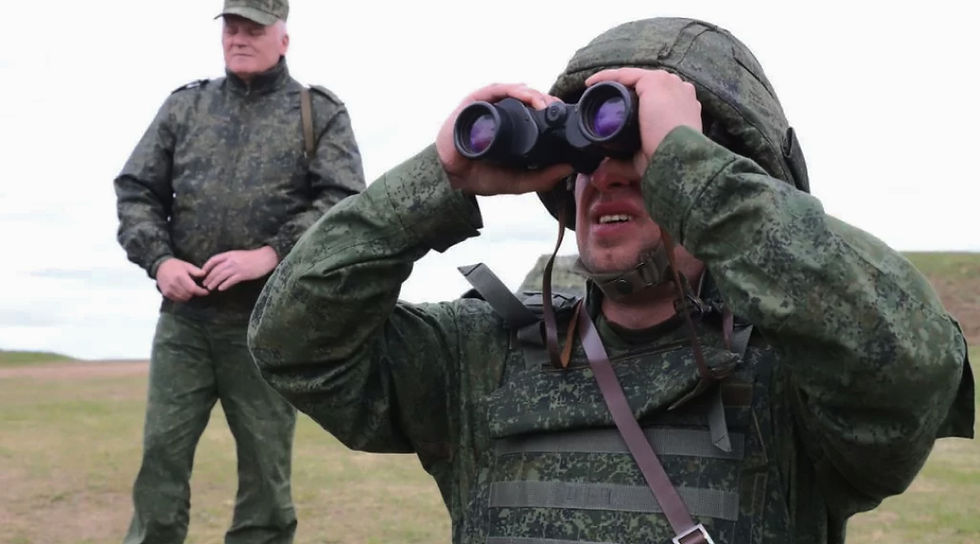The Illusion of Security from Lukashenko
- Admin of the NAM

- Nov 9, 2025
- 4 min read

Beneath Lukashenko’s rhetoric about peace at the Minsk Conference on Eurasian Security lies the systematic militarization of the country, managed fear, and an attempt to consolidate power amid internal weakness. Lukashenko spoke there about his commitment to peace, claiming that Belarus has always supported dialogue. Yet alongside his speech, we observe a different reality:
Armed forces brought to highest combat readiness by the dictator’s order on October 11 this year;
Mass inspections of alert systems across the country (almost weekly in different regions), as well as emergency exercises at enterprises with military significance (at Horizon in Minsk and at the Casting and Standards Plant in Gomel), and large-scale exercises near Borisov in October, where scenarios included industrial fire suppression, railway accident response, and clearing debris from residential buildings;
Call-ups and mass fingerprinting of military conscripts;
Periodic exercises of territorial defense units (for example, in September in Oktyabrsky District of Minsk and Molodechno District of Minsk Region);
Internet block testing (temporary blocking of VKontakte) and intelligence reports about mythical "liberation armies".
A third of all state programs for the next five years are related to national security (8 out of 28). Of these, four are so-called "special programs", the content of which is secret. They are supervised by the KGB, Ministry of Defense, the Academy of Sciences, and the State Military-Industrial Committee.
When a state talks about peace but prepares for war, we have the right to ask: for whom and why is this fear needed?
Connecting recent events, a clear picture emerges: Belarus is systematically undergoing a practical test of its mobilization system:
Military exercises practice large-scale conflict scenarios;
Reservists and territorial defense units undergo training mobilizations;
Communication, transport, and civil defense systems are activated;
The Ministry of Emergency Situations synchronizes its exercises with the military.
These are not merely exercises. This is a dress rehearsal for a crisis — a crisis that the authorities themselves could provoke, under the guise of protection rhetoric.
Lukashenko is building a new ideological construct: "Eurasian security" vs. "Western chaos". This scheme is convenient: it creates the illusion of choice — as if Belarus must side either with the “global majority” or the "decaying West".
Yet pragmatically, Belarus today is not a subject of this system, but a dependent object of the Kremlin’s military and political adventures. Deploying nuclear weapons under the guise of a "defensive measure" is not a security gesture, but one of subordination. When Lukashenko says: "We don’t need Europe, neither Paris nor Warsaw", he is effectively admitting that Belarus is isolated. And it is not the West that isolated us — the regime itself has enclosed the country in a circuit of fear.
Let us briefly examine four points from Lukashenko’s conference speech:
First — prohibition of sanctions on food and medicine. It sounds humane, but it is an attempt to legitimize sanctions circumvention under a humanitarian pretext. To date, the West does not impose and has never imposed sanctions on food and medicine — this is false. Even when sanctions affect human interests, as with dual-use goods, these were imposed by the EU and the US because the Lukashenko regime and Russia actively use these goods for military purposes.
Second — protection of critical infrastructure (oil and gas pipelines, nuclear power plants). But who for years risked Belarus’s energy security? Who blackmailed the West with a gas pipeline? Who creates emergencies at Ukrainian nuclear plants? These are the same people now lecturing us about infrastructure inviolability.
Third — migration. The rhetoric is predictable: "The West destroyed the Middle East — now it must deal with it". But it was Lukashenko himself in 2021 who used migration flows as a tool to pressure Europe. Today, the illegitimate authority tries to present itself as a victim. This is not policy — it is a simulation of responsibility.
Fourth — artificial intelligence. For the first time, the topic of the future is raised. But in the hands of an illegitimate government that blocks the internet, closes social networks, and bans independent media, talk of AI threats is fear of uncontrolled new technologies.
Lukashenko speaks of the "principle of indivisible security", yet in reality, Belarus itself has abandoned this principle, becoming a launchpad for foreign wars. When nuclear weapons are deployed on our territory, and Lukashenko assures that they are "not targeted at anyone", it inspires neither the trust of neighbors nor that of citizens.
The dictator Lukashenko builds a model where fear is the main resource of governance: fear of the West, fear of war, fear of internal enemies. This fear is fueled by daily alerts — sirens, inspections, notifications of "threats". Yet behind each such drill is a distraction from real problems: rising prices, falling incomes, emigration of specialists, loss of investments.
Our position differs from Lukashenko’s not in slogans against war, but in realism. We do not need the illusion of temporary non-involvement in war under Russian tutelage. We need real neutrality, based on trust with neighbors and transparent actions. Belarus could be a platform for genuine dialogue, not for propagandist forums.
If the current logic persists, Belarus risks becoming not a guarantor of peace, but a hostage of someone else’s war. And the longer Lukashenko keeps society in a state of mobilization, the harder it will be to return to normal life.
We need not a "digital neighborhood belt", but a belt of trust and responsibility. Not a "charter of multipolarity", but real rules — where security is measured not by tanks, but by the degree of citizens’ freedom.
Today, Lukashenko says that "Europe does not want peace". But if we look honestly, it is the dictator himself who does not want dialogue. Because peace requires openness, transparency, and internal stability. And stability is impossible without citizen trust, regular changes of power, and justice.










Comments